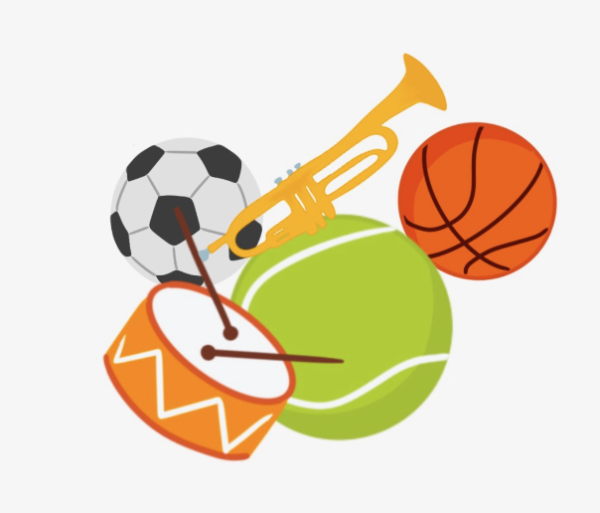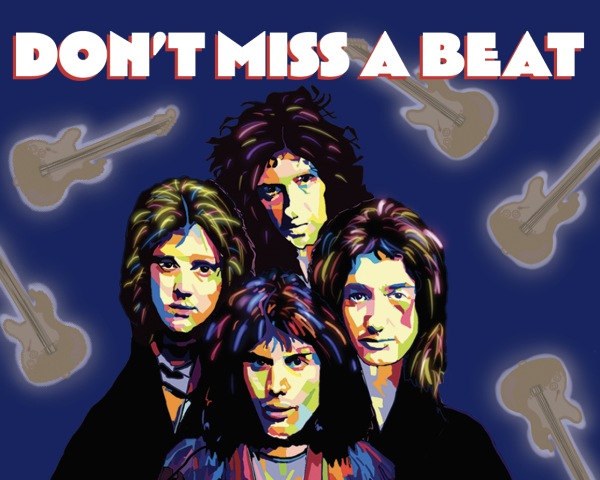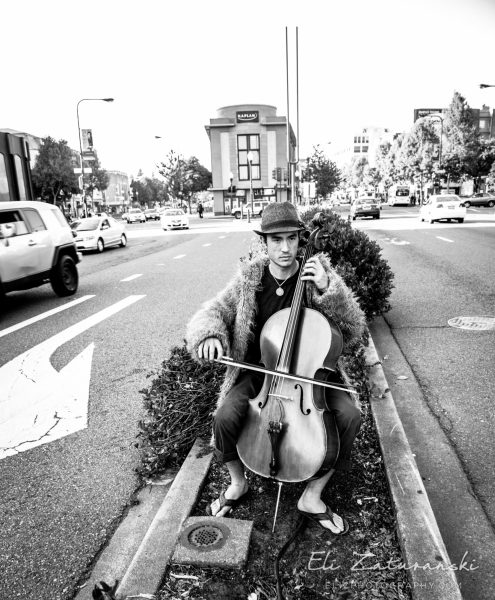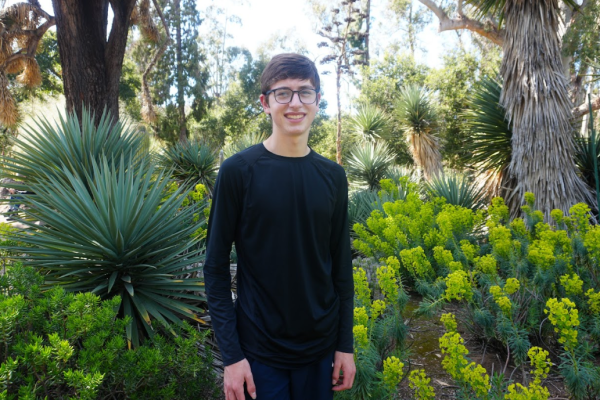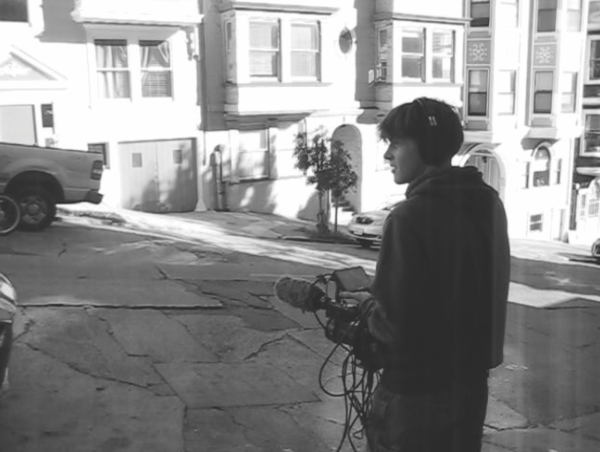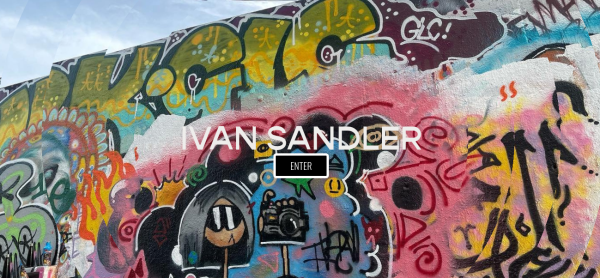Featured Artist: Dillon Scheel
C Mag sits down with senior guitarist Dillon Scheel to learn more about his band, his recording experience and his musical aspirations.
As I walk down the stairs into Dillon Scheel’s basement-turned music studio, he welcomes me to his “beat laboratory.” I settle into the cramped, styrofoam-insulated room and it’s immediately apparent how invested Scheel is in his music. A piano, a drum set, a series of guitars, and an unusual number of picks surround a chair and microphone that he’d been using to record.
For a man of few words, Scheel seems overwhelmed by how much he wants to share. He explains the function of all of his recording equipment and why he uses one particular technique over others. He seems infatuated with everything pertaining to the musical process. As soon as music is played or brought up, his distant stare snaps back to the present and he ignites with fixation and knowledge.
While Scheel has always been fond of music, he began playing the guitar at the age of nine. Not only is he a talented player, but he also has a keen ear for rhythm and harmony, and is able to easily continue a song after only having heard a few bars. His acute skill, complimented by the euphonious voice of Palo Alto High School alum Henry Hughes, constitutes the most impressive amateur band I’ve ever heard.
Not only are their songs fantastic, but they have a magnetic dynamic; watching them perform is incredibly fun and everyone in the room feels the vibe of the music. There’s no uncomfortable staring, no hesitation; they simply jump in with confidence, causing their audience to reciprocate with confidence in their success. For having only released two songs, they’ve developed a devout cult-following, including a series of groupies that closely monitor their every move.
Despite his local success and impending stardom, Scheel has somehow remained above the fray by focusing on school and college applications. However, it seems as though he’s simply passing the time until he can return to his studio, guitar in hand, and work toward his big break. Following is an interview that should give you some insight into the mind of Dillon Scheel, and if I were you, I’d have him sign it. You might be able to buy a car with it one day.
Q&A with Dillon Scheel

C Magazine: What type of music do you play when you perform?
Dillon Scheel: A lot of John Mayer…Our closeout song, usually, is “Gravity” because by that time…it’s 7:30 or 8:00, so we’ll dish out Gravity because it’s a pretty smooth and really good ending song. Other than John Mayer…we’ll play some Zac Brown Band, we’ll play some Norah Jones…One of our favorite songs to play is Neon by John Mayer. If you haven’t checked that song out, you’ve got to check it out. If we do any cover songs, that’s our first go-to.
CM: What style does your band generally adhere to?
DS: I’d say it’s a lot like John Mayer’s, but what we’d like to be is more like John Mayer if he had a full band because [he] can play whatever he wants. Sometimes he can sound like an acoustic solo act, sometimes he can sound like Jimi Hendrix…But we would like to be more of a band with a distinct sound.
CM: We heard a few of your songs. What was the process of actually recording them?
DS: We went to this studio in Belmont with this woman that we have connections with through my dad…We recorded three songs but we didn’t finish the overdubbing, which is when you pick the best take [of a song] to use for the remainder of the recording process…They sound good when they’re produced that way, but, the thing is, when you record in an acoustic studio like that and you don’t go in and put effects on it and you [skip] the whole mastering process, then the sound just isn’t as big and bold as you’d like.
CM: Did you learn anything from the process?
DS: Well, we recorded on tape, and people that I’ve talked to who have asked about my recording are like, “Wow, you recorded on tape for the first time? That’s pretty impressive.” Nowadays, you can do anything digitally, and it’s super easy to record. On tape, we just didn’t get the sound we wanted because we didn’t go through the whole process of getting the effects we wanted on the guitars and vocals and really add in some other elements. Like, in a lot of songs today, you’d hardly even notice, but there are some synths in the background, some strings and just other added elements that give it a bigger and bolder sound. So we basically learned that we wanted to do things digitally from now on.
CM: Do you think that you want to stick with Hughes in the future to maintain the band?
DS: It’s tough to really collaborate right now, but he’s helped me in a lot of ways to figure out if I wanted to pursue a career in more contemporary pop music…because I have a lot of background in jazz. So in terms of writing music that’s more for an audience that you can connect with, he’s been good at keeping me in check…When I, with my jazz background, write music, it’s not exactly as easy to listen to. So when I bring a song to him and we go through it together, [his critique] is kind of disappointing sometimes, but he’s usually right and he has a good ear for that kind of thing, which is really important if you want your music to get anywhere.
CM: So you absolutely want to pursue music? No plan B?
DS: Yeah, I do. I’ve looked into applying to music school and I thought I was going to do that for about a year. Long story short is, I thought I was going to go to music school…I’m not going to do that anymore and what a lot of my teachers have told me is if you study on your own, you can learn just as much as you would at another conservatory. It’s all about your own work ethic, making your own opportunities, going out and playing different gigs, and finding new places to play. I’m not taking the route through school, I’m taking my own route, and I’m going to keep playing as many gigs as I can, put my music out there and see what people think.


